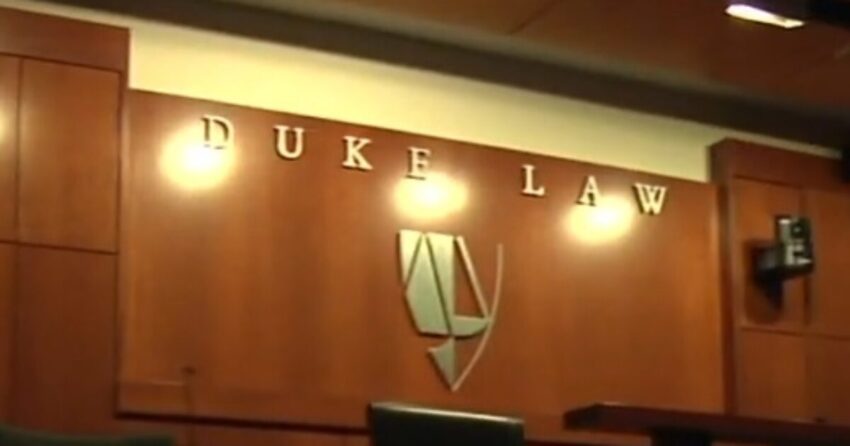
A prestigious law school journal reportedly told minority applicants they would get extra points for writing essays about their race despite a Supreme Court ban on racial preferences in college admissions.
Duke Law Journal encouraged applicants for its editorial board in 2024 to submit personal statements on how being in an “underrepresented group” will help the journal promote “diverse voices,” The Washington Free Beacon reported Monday, citing an internal memo shared with students. The document reportedly told students in the law school’s identity-based “affinity groups” not to share the information with other students.
The journal, copyrighted on Duke Law School’s website as part of the school, told applicants from affinity groups that they would get ten extra points for the essay about their race and another three to five points if they “hold a leadership position” in the affinity group, the Free Beacon reported.
The journal’s website says it awards the editorial positions to approximately 39-47 rising second-year students out of more than 750 students enrolled at Duke Law School. Obtaining a law journal position is widely considered beneficial to a student’s future career in the legal field.
The Duke Law Journal memo contained examples of the race-focused essays that would secure bonus points for applicants, the Free Beacon reported. In one sample essay, an author wrote that “as an Asian-American woman and a daughter of immigrants, I am afforded with different perspectives, experiences, and privileges,” according to the outlet.
The Supreme Court ruled in June 2023 that it is unconstitutional for universities to factor race into admissions policies while receiving federal funds. The court’s opinion also warned schools not to attempt subtle injections of race into their policies to skirt the ruling.
Duke Law School and the Duke Law Journal did not respond to the Daily Caller News Foundation’s requests for comment.
“Universities may not simply establish through application essays or other means the regime we hold unlawful today,” Chief Justice John Roberts wrote for the court’s majority. Legal experts expressed concern after the ruling that universities would try to do so anyway.
Colleges face lawsuits in multiple states over allegations of discriminatory hiring and scholarship practices in the name of diversity. The Trump administration’s Department of Justice (DOJ) announced in March that it would investigate several California universities suspected of violating the Supreme Court’s 2023 ruling.
All republished articles must include our logo, our reporter’s byline and their DCNF affiliation. For any questions about our guidelines or partnering with us, please contact [email protected].
Click this link for the original source of this article.
Author: Hudson Crozier
This content is courtesy of, and owned and copyrighted by, https://www.bizpacreview.com and its author. This content is made available by use of the public RSS feed offered by the host site and is used for educational purposes only. If you are the author or represent the host site and would like this content removed now and in the future, please contact USSANews.com using the email address in the Contact page found in the website menu.








